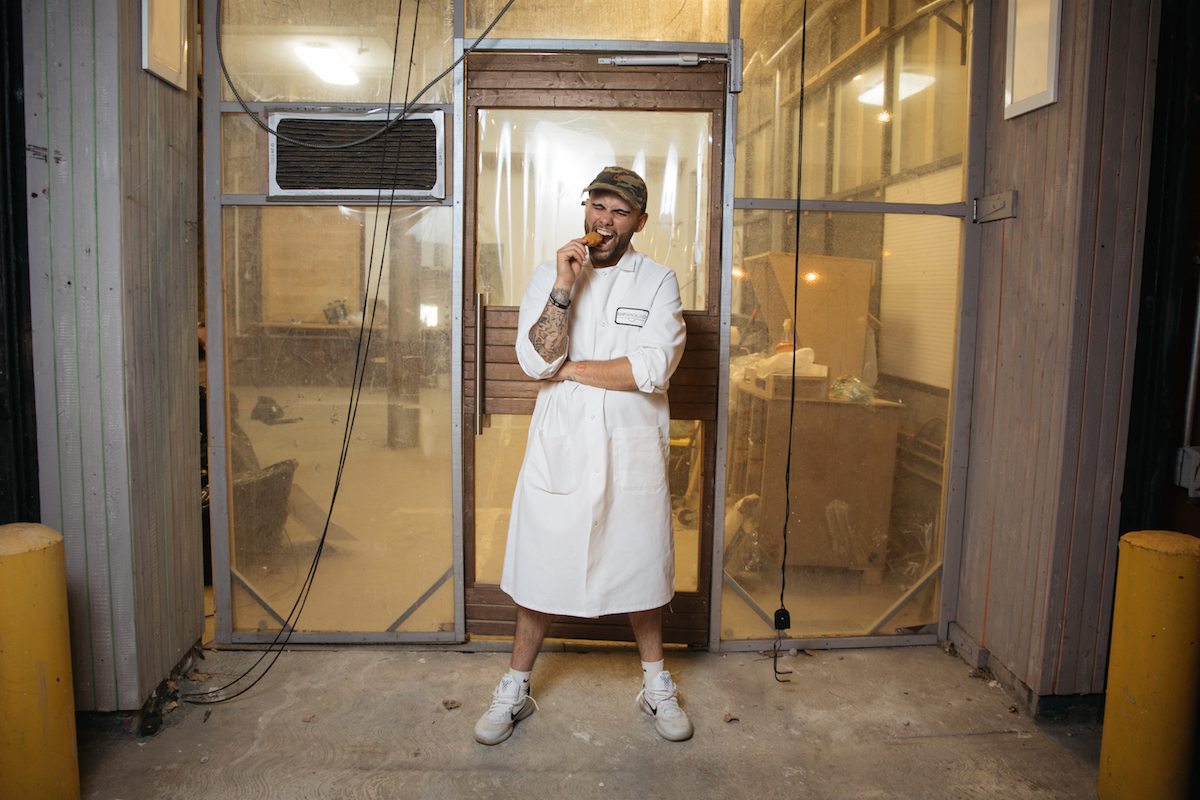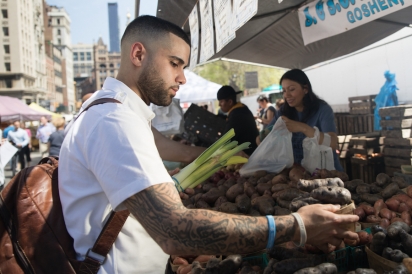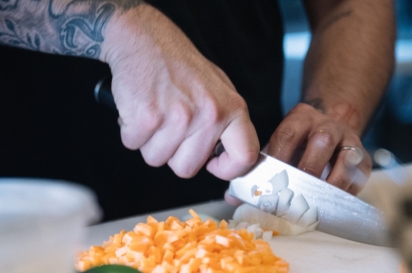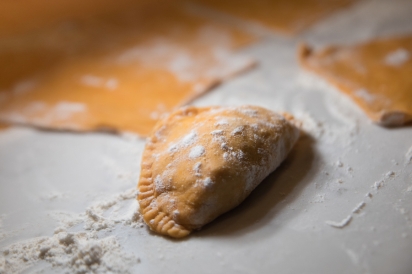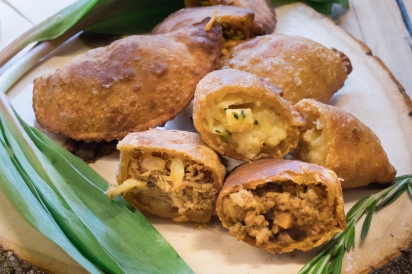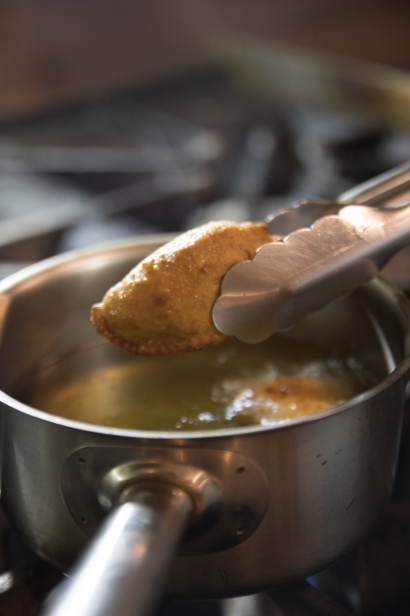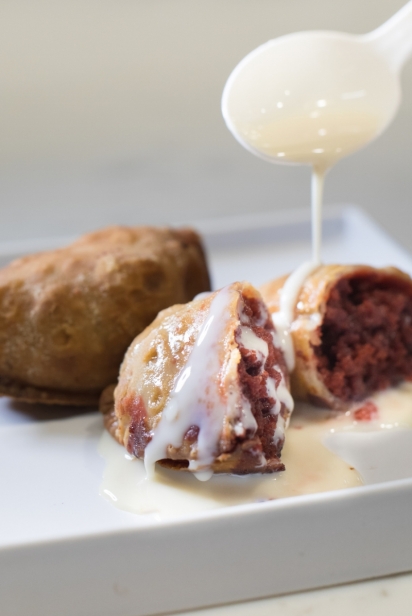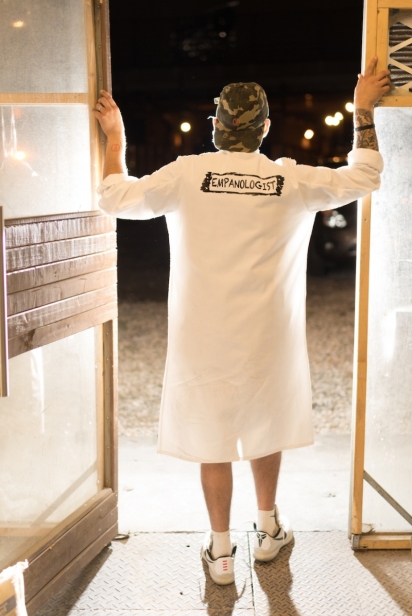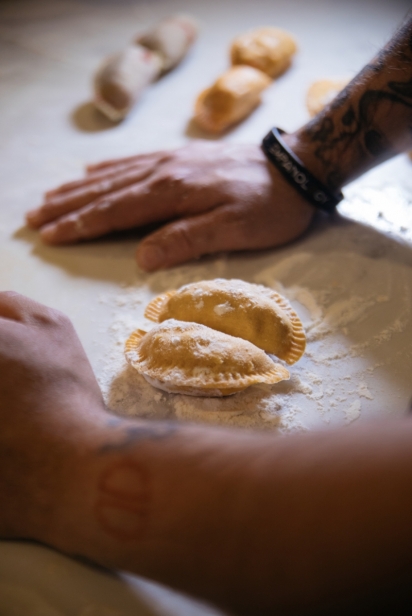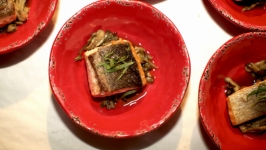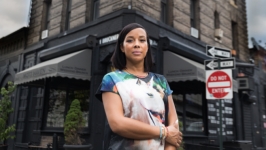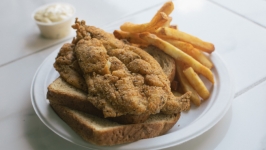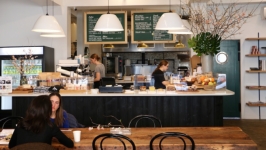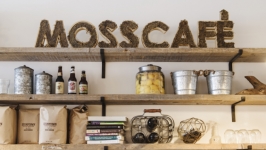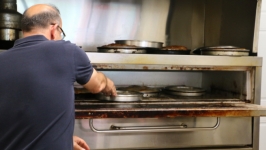Empanology Offers Up Pockets Of Love
Jason Alicea had taken countless trips to Union Square Greenmarket, but one afternoon in April, the 30-year-old chef still wondered at the scene. He paused at a booth to snap a pic of root vegetables sliced like coins, immortalizing their yellow and purple insides on Instagram.
When Alicea was growing up, artisanal meals weren’t in his family’s budget. But raised between his separated parents’ apartments in the Bronx, Alicea bonded with both in their kitchens, the place where he always felt at home.
“By 6 years old [I was] standing on a stool over the flames, making my own scrambled eggs,” said the Institute of Culinary Education graduate.
After six years of incubation, Alicea’s Empanology start-up launches a new pop-up eatery in Mott Haven this summer. Alicea dishes out hand-crafted empanadas—“pockets of love”—in over 40 flavors based on his Puerto Rican family’s dough recipe. Relying on fresh ingredients from local markets, Alicea offers a new spin on worldly eats with a menu that turns with the seasons.
Empanology traces its roots back to the Alicea family’s kitchens. Alicea’s mom inherited the butter-rich empanada recipe from her ex-husband’s mother, who always greeted her grandson with a warm hug and his favorite chicken dish.
Alicea, now based in Pelham Bay, has guarded the dough recipe as a family secret. He’ll never divulge the spice that substitutes turmeric in the red-orange dough, but he’s open about his liberal use of cilantro, a common herb in Latin cuisine that tinges the taste of nearly all his fillings.
On a recent Sunday afternoon, Alicea prepped his empanadas in the cozy kitchen of Hartell’s Deli in Nyack, owned by one of his mentors, chef Frank DeNardo. Alicea emerged from a walk-in freezer with a metal bowl, brimming with a mauve-colored medley of beets and carrots he’d sourced from Union Square.
Most customers expect to pay $1 for traditional empanadas, Alicea noted. But his savory pastries—stuffed with antibiotic-free meat, vegan alternatives and other pricier ingredients of quality go for $3 or $4 a pop.
To keep costs down, Alicea relies on a small food prep team that he helms himself.
“My fingers always smell like onions and garlic,” he said amused.
When two of his friends-turned-helpers showed up at Hartell’s, the three men fit snugly along the seven-foot counter, each tasked with pulling, stuffing or folding the dough into ruffled edges. After a 12-hour deli shift and a short night’s sleep, Alicea and his sous-chefs had to prepare 900 patties for an all-day pop-up at Mottley Kitchen the next day. He estimates he’s folded more than 10,000 over the last six years.
The hustle
Alicea has hustled to scale the food industry ladder, moving from Whole Foods dishwasher out of high school in 2005 to executive chef at a West Harrison restaurant by 2011. When a car crash that November tore his right meniscus and landed him out of work for surgery, Alicea was forced to rethink his future in food.
Alicea moved into his late grandmother’s apartment in El Barrio to recover, but he spent more time in the kitchen than resting on the couch. He wheeled in a butcher-block table where he arranged produce, which he styled for social media before cooking. Using his grandmother’s pots and pans, Alicea spent two months in recovery experimenting with dishes that blended fresh ingredients with his family’s home cooking. The idea struck him to start his own company.
“When he had the accident, that was the only thing on his mind,” said Jonathan Dominguez, Alicea’s decade-long friend and Empanology collaborator.
As Alicea fully recovered and threw himself into more catering jobs, Alicea realized his empanadas were especially popular. A 2014 trip to Piñones, Puerto Rico—known for its beachfront food shacks—inspired him to make his tasty bites as his specialty.
While standing on line at his favorite empanada joint, Kiosko El Boricua, Alicea noticed the women stuffing empanadas with expert precision. It reminded him of his grandmother, and he got the idea to bring a similar concept back to New York.
Alicea tested out his empanadas close to home; congregants at his father’s church became some of his first customers.
“Everyone wanted them,” said Efrain Alicea, pastor at Elements Church in Wakefield. “He’d show up at church and they’d be, like, ‘Hi, Jason. Listen, I’d like to place an order.’”
The elder Alicea remembers having his son stay over as a kid, serving dinners of boxed rice mixes and Spam when money was tight. These days, the pastor delights in his son’s artisanal eats. Thinking of the truffle mac-and-cheese and tres leches flavors—two of his favorites—makes him hungry.
Alicea is currently the only full-time Empanology staff, but he’s not alone. His wife, Ruby, proudly calls herself Empanology’s taste tester. The 29-year-old high school guidance counselor chipped in the first $500 to incorporate the name of her husband’s catering service. “It was a small token to show how much I believe in him,” she said. She also helps plan and produce the start-up’s events. Her favorite empanada filling is ropa vieja—shredded beef.
More than a couple, the Aliceas are a team—always smiling, often matching in camo baseball caps. The pair recently renovated an industrial space at 2407 Third Avenue, where Empanology will run as a pop-up eatery for nine months.
Alicea has grand plans for the pop-up: indoor and outdoor seating, local art promotion and movies on the property’s gravel lot. Not only is the Mott Haven lot an oasis for the foodie community Alicea wants to cultivate, but Alicea will waste less time driving in produce from other boroughs once the South Bronx Farmers Market resumes. He’s already dreaming about the hydroponically grown tomatoes and other summer bounty that he’ll store in his new freezer on Third Avenue.
Eventually, Alicea wants Empanology to expand from a pop-up to a permanent fixture, a brick-and-mortar store of his own.
“It’s a dream. I think that’s the goal of a lot of chefs,” said Alicea. “Having my own space would be a second home.”


